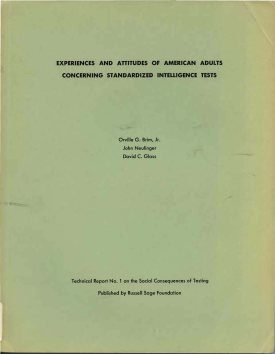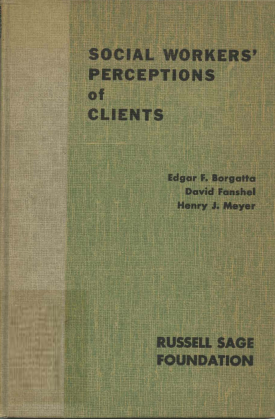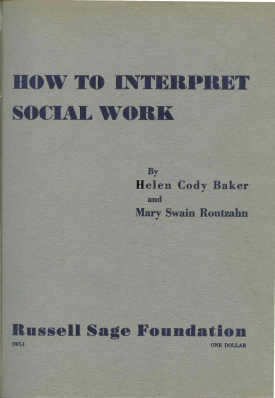
Experiences and Attitudes of American Adults Concerning Standardized Intelligence Tests
About This Book
In 1962 the Russell Sage Foundation initiated a series of studies on the social consequences of standardized intelligence, aptitude, and achievement testing. This book presents the initial results from the series, focusing on the social impact of tests of intellectual abilities, based on questionnaire responses from adults across the United States.
ORVILLE G. BRIM was president of the Russell Sage Foundation.
JOHN NEULINGER was assistant professor of psychology at City College of the City University of New York.
DAVID C. GLASS was professor of psychology at New York University.




